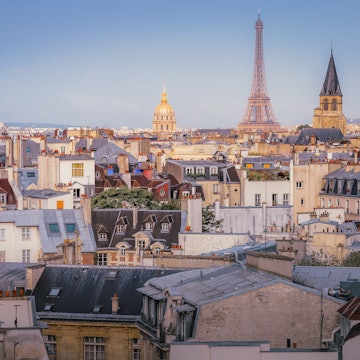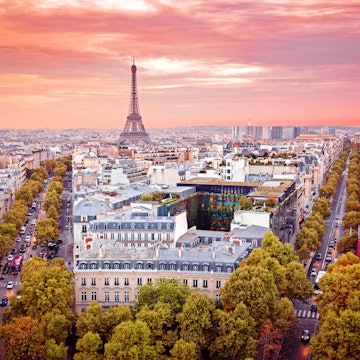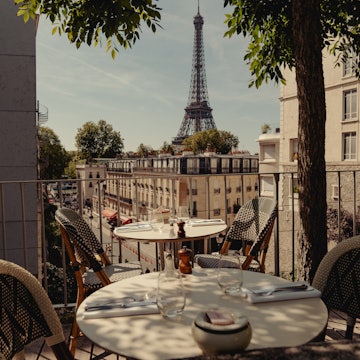

Bordeaux might have the most efficient public-transport system in all of France. Pierre-Olivier/Shutterstock
Getting around Bordeaux – a compact city that contains a dazzling mosaic of architectural styles – is simply a delight.
This is, after all, the world’s largest urban World Heritage Site, encompassing some 18 sq km (7 sq miles) – or half the entire city. Since time immemorial, vessels of various shapes and sizes have navigated the mud-brown Garonne River that winds gracefully through the port city, into the Garonne Estuary and beyond into the Atlantic Ocean.
Pedestrians have crisscrossed Bordeaux’ medieval heart for centuries, while neighborhoods are amply served by what might be the most efficient public-transport system in France. Perhaps best of all, bike-mad locals are the biggest advocates of carbon-cutting modes of transport.
Here are all the best ways to get around their hometown.

Catch a tram for an easy ride in from the airport, and then around town
There’s no easier or more efficient way to get into central Bordeaux from the airport than by the state-of-the-art tramway. Catch line A from the tram stop in front of Terminal A, with trams departing every six to 10 minutes between 5am and midnight. Some 40 minutes and 10km (6 miles) later, alight at the Hôtel de Ville stop, on the southern side of the cathedral.
From here, you can transfer to line B, which follows the river north to Chartrons and La Cité du Vin, stopping en route at public-transport company TBM’s tree-shaded hub Esplanade des Quinconces. To get to the Bordeaux train station from the airport (one hour), ride line A to the Porte de Bourgogne stop, then change to line C for the four-stop ride to Gare St-Jean.
At the airport or train station, when buying your ticket from the machine by the tram stop, consider how many times you’ll use public transport that day and while in town. A two-/10-journey ticket for €3.20/14.50 (US$3.34/15.10) or a 24-/48-/72-hour ticket for €5/9/12 (US$5.20/9.40/12.50) might be better value than the pricier single fare of €1.80 (US$1.88; valid for one hour). The same tickets will work on TBM buses and boats.
Planning tip: To save paper and queue time at ticket machines, download the TBM app (available for iOS and Android) to buy tickets. Once on board, simply scan your phone at ticket-validating machines.
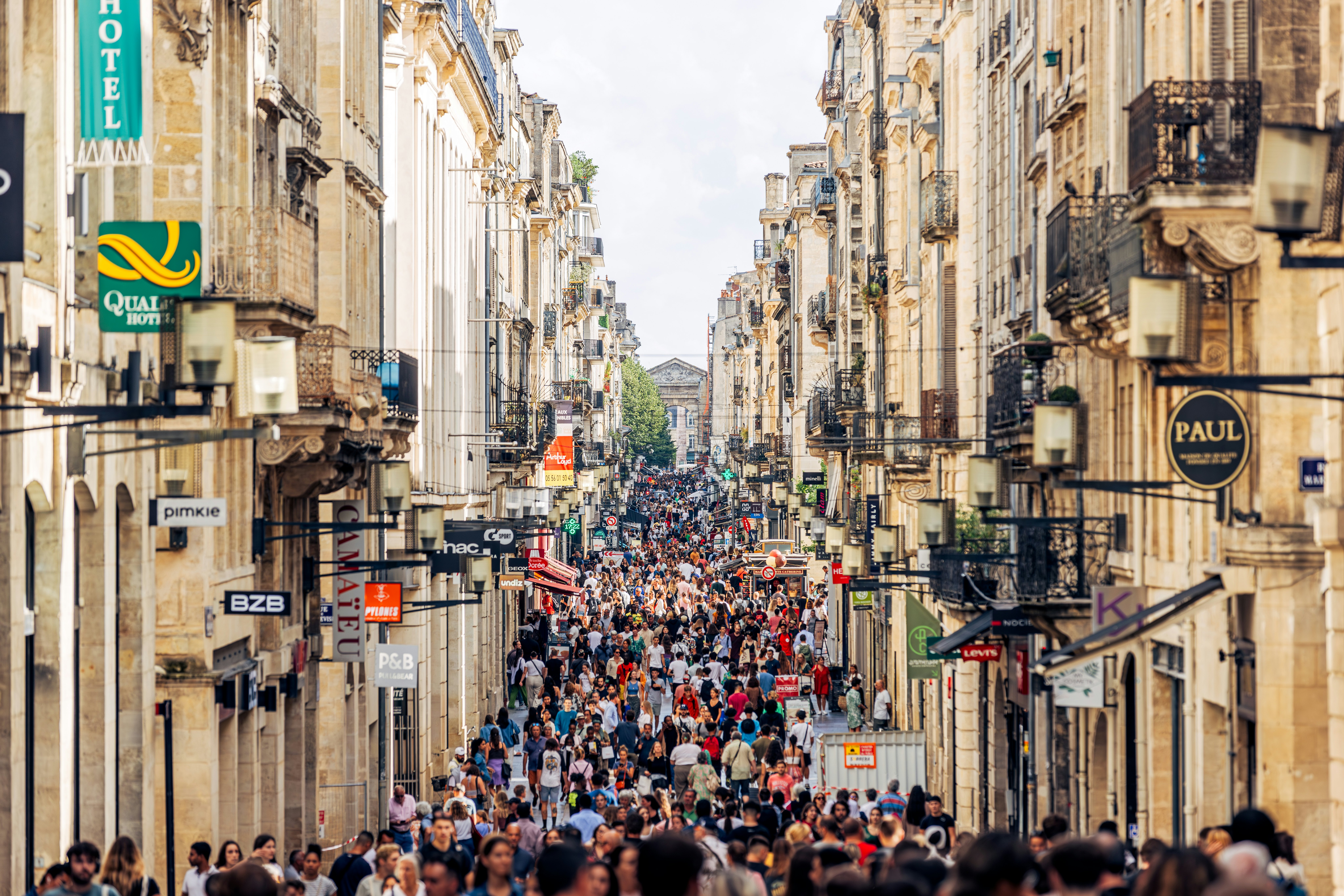
Set out on foot to explore the city’s heart
Do literary legends Balzac, Baudelaire and other celebrated French flâneurs proud – and just walk. Bordeaux is a city that was clearly created with slow, indulgent meandering in mind, and there is no finer means of admiring the elegant symmetry of iconic Place de la Bourse, eyeballing grimacing mascarons (faces) on gold-stone facades or drinking in the city’s contagious cosmopolitan energy than by getting from A to B to Z on foot.
With its web of alleys and backstage squares peppered with provocative street art by the likes of French aerosol artist Alber or homegrown Monkey Birds Crew, the historic wine-trading district of Chartrons is particularly conducive to explorative walking.
Planning tip: Bordeaux’ tourist office has information on guided, street art-themed urban walks. Alternatively, from March to October, street-art center Galerie Magnetic runs 2.5-hour tours for €20 (US$21), on foot, rollerblades and bikes.
Hop on a boat for the the slow and scenic route to La Cité du Vin
Since the heritage-proud Bordelais affectionately refer to their city as Port de la Lune (Port of the Moon), it’s only appropriate during your stay that you view the city from a watery perspective. Scenic Bat3 riverboats – cheaper than any organized river cruise – dock at five stops along the Garonne, including right-bank Stalingrad (convenient for exploring La Bastide) and, along the left bank, Quinconces, Les Hangars (the “shoppers’ stop,” directly in front of the Bord’eau Village shopping center) and La Cité du Vin (find the jetty in the small garden hidden behind the curvaceous edifice). Use a regular tram/bus ticket, or buy a pricier €3/4 (US$3.13/4.17) ticket valid for one/two journeys aboard. If you’re feeling intermodal, bring your bike aboard the boat.
Planning tip: Bat3 boats run from 7am to 7:30pm (and from 9am on weekends). Sailings are only every two hours or so – so plan ahead.
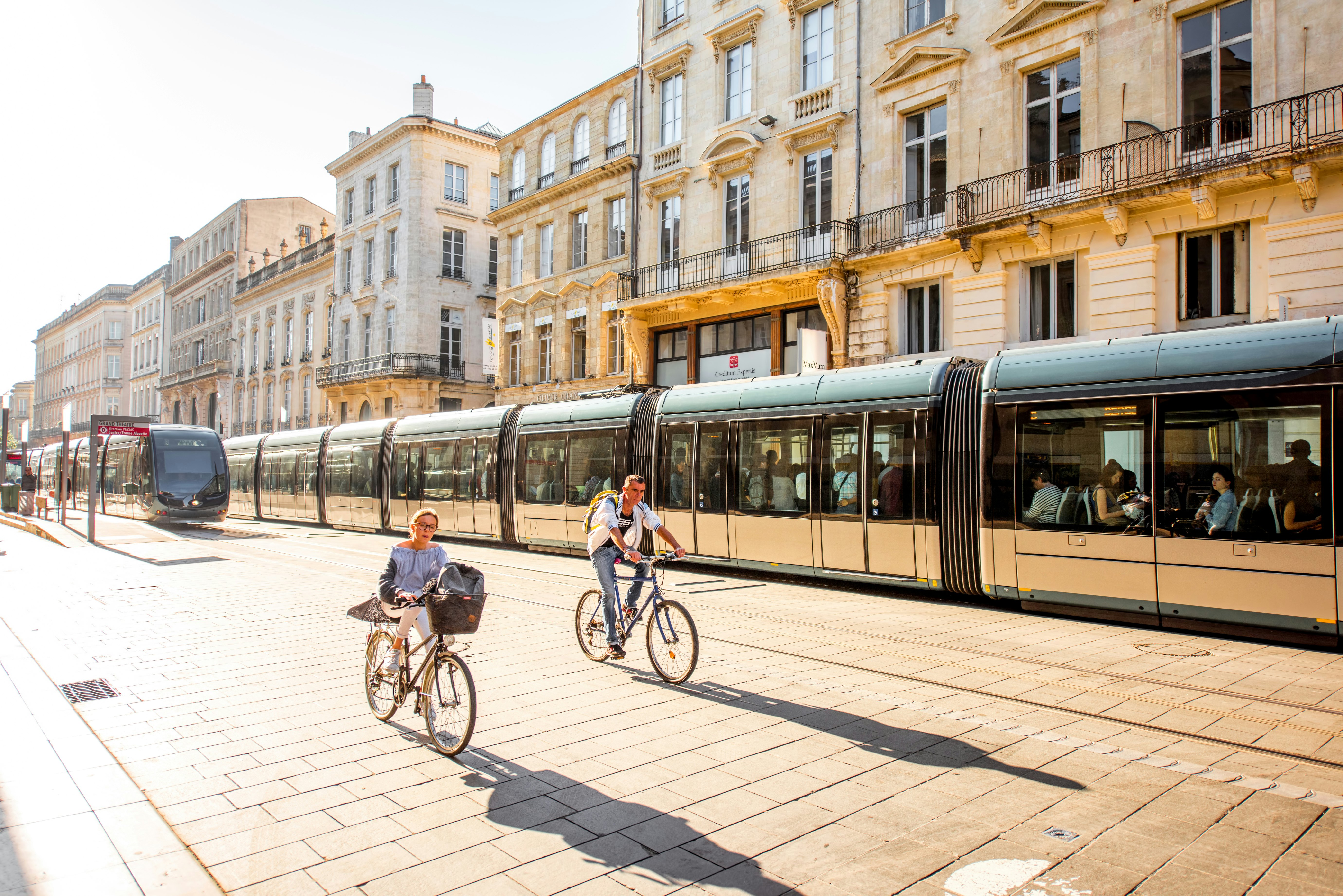
Make like a local and ride a bicycle
With a giddy mix of cycling lanes, shared bus and bike lanes, and bike-only streets, Bordeaux is an insanely bike-friendly city. TBM’s public bike-sharing scheme V3 is cheap – €1.70 (US$1.77) to register, with 30 minutes free then €2 (US$2.08) per hour – and efficient, with 2000-odd bikes (half electric-powered) and almost 200 docking stations around the city. Download the TBM app to locate stations and available bikes. Alternatively, Cool Bike is one of many small, independent rental shops run by passionate cyclists who are happy to share insider tips and favorite itineraries.
Keep in mind that anyone on foot will invariably curse Bordeaux’ abundance of bicycles at some point during their stay. Indeed, sharing the pedestrian promenade along the river with all manner of speeding wheels – push bikes, cargo bikes, e-bikes, tandems, bike trailers, stand-on scooters, wheelchairs and strollers – can lead to frequent close calls. (Cyclists take note: on car-free streets and pedestrian areas, the maximum speed is 20kph/12.5mph, and pedestrians always have priority.)
Tip for pedaling through vineyards: Bordeaux’ tourist office offers seasonal guided tours by bicycle around the city and into surrounding vineyards, as does Bordeaux Bike Experience. For e-bike tours, hook up with Rustic Vines.

Grab an e-scooter to speed along the river
To ensure no one misses out on the riverside fun, free-floating electric trottinettes (stand-on scooters) by Pony and Dott fill the gaps. Again, download their smartphone apps to locate, pay and unlock. Officially, users must be at least 18. Stick to one person per vehicle.
Rent a car to road-trip between châteaux and vines
There’s zero need, quite frankly, to have a car in Bordeaux. Traffic is heavy, parking is challenging, and public transport or bicycles are often faster. This said, your own ride is the golden ticket to dreamy road trips ribboned with vineyards in Médoc wine country. Car-rental agencies have desks at Bordeaux airport.
A ring of 25 park-and-ride car parks (parc relais in French) around Bordeaux city center encourages motorists to park and take the bus or tram for the final leg into town. For those who insist, expect to pay around €1.80 (US$1.88) to €2.50 (US$2.60) per hour for metered street parking (free from 7pm to 7am, all day Sunday and public holidays); download the EasyPark or Flowbird app before arrival to pay by smartphone.
Planning tip: Metpark operates 31 covered and open-air car parks – €0.80 (US$0.83) for each 15 minutes, or €20 (US$21) per day – in downtown Bordeaux. Many have free charging stations for electric cars.
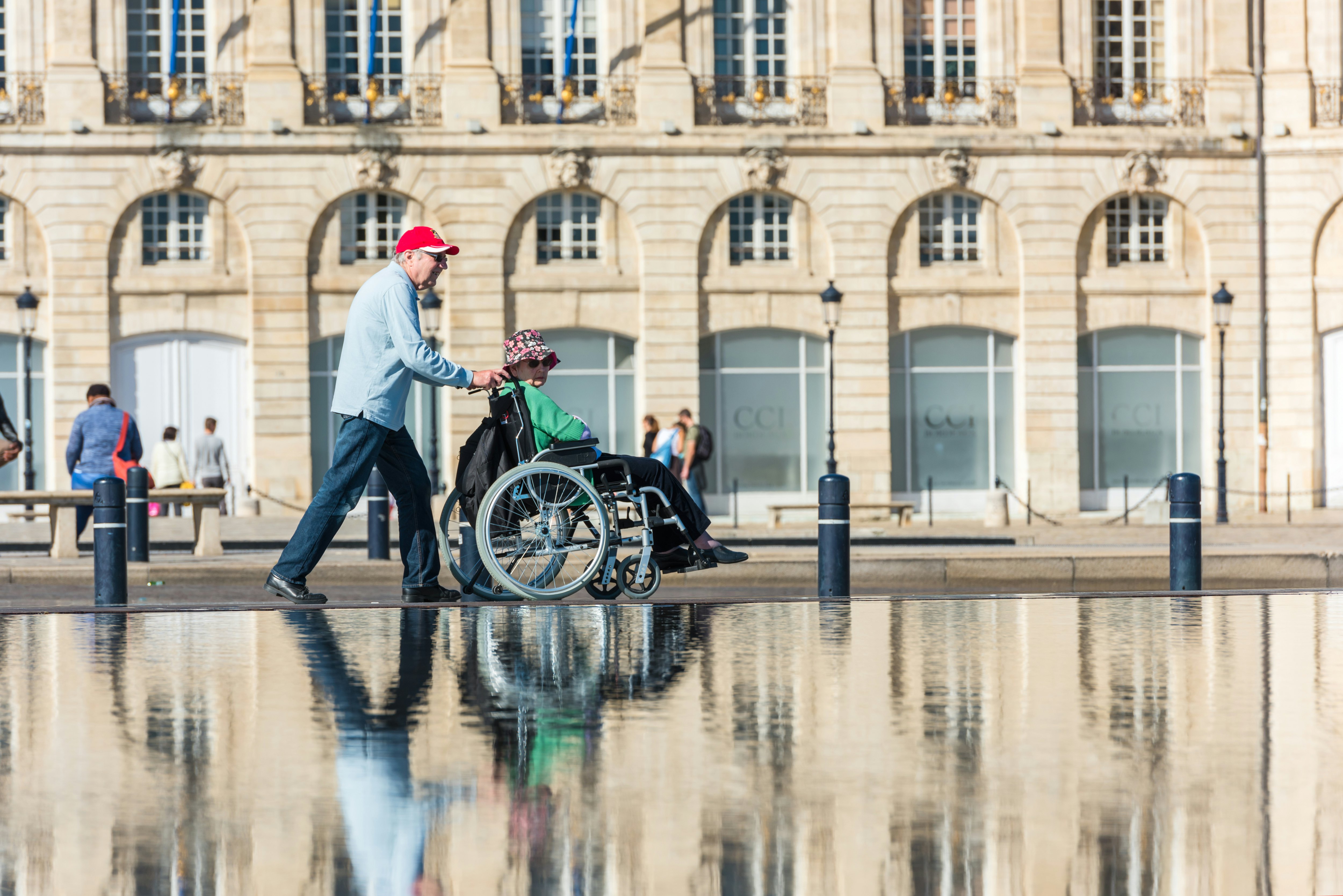
Accessible transportation in Bordeaux
Cobbled and stone-paved streets in medieval St-Pierre and St-Paul are difficult for travelers with disabilities to navigate. Yet all four tram lines and city buses are wheelchair accessible, with ramps to board, priority spaces, and audio and visual stop announcements during the ride.
Transport passes
The cent-saving Bordeaux City Pass – 24/48/72 hours for €35/45/50 (US$36/47/52) – is sold online and at the Bordeaux tourist office, and includes unlimited use of public transport and a free guided tour as well as admission to major museums.











